Article by Marzia Picciano | Photo by Rossella Mele
When I arrive (now more than a month ago) at International Neighborhood Center (CIQ), or the urban regeneration project of the socio-cultural association Sunugal and of Fate Artigiane Social Cooperative who have been managing the structure since 2016 Cascina Casottelloto interview his patron, It's at the end of a semi-summer day at the end of September, and above all it's Monday evening, just before dinner. The Center is half empty, only a few kids are twirling around in the main room where a Latin American dance lesson is being prepared between instruments and stage. On the other side of the farmhouse the drums and percussionists are preparing the rehearsal session in the room behind the bookcase. Around the Corvetto, quite sleepy as every self-respecting Milanese should be at the end of the day. There is a hint of the beginning of winter humidity.


The first time in Via Fabio Massimo 19 was on a summer evening: between a private party, chips and a Latin evening, a welcoming light was cast on the green and solitary areas surrounding the Porto di Mare Metro, and it didn't even look like Corvetto, what do I say, it didn't even look like Milan. Now it's a calm evening in Cascina, to put it briefly: there are no evening events. But the welcome, that of Modou Gueye, artistic director and external relations contact of the CIQ as well as President of the Sunugal Association (in wolof: “our boat”) which is based in Cascina (ea Thiesin Senegal) and gave impetus to the very creation of the Center, going far beyond the very idea of the organization.
To understand well the CIQ first of all you have to understand it well Modouand his charisma. Born in '69, resident in Italy since '90, he is not someone who is afraid of what he says or represents. And he is an artist first and foremost, of theater (theatre Black masks, ERTetc), in addition to collaborations and forays into music, both as a voice and as an author (he's in In Malindi, Of Old menbut also in the organization of NIO FAR festival; he made a record, Soul Africa), and on TV (as an actor but also as a commentator, speaking both from Gramellini that gives Del Debbio). And he is a cultural mediator. And if seeing his incredible CV wasn't enough, keep in mind my word about his experience as an overwhelming leader of the Centre, who before even starting puts you at the table with food and then we talk. And with what enthusiasm.
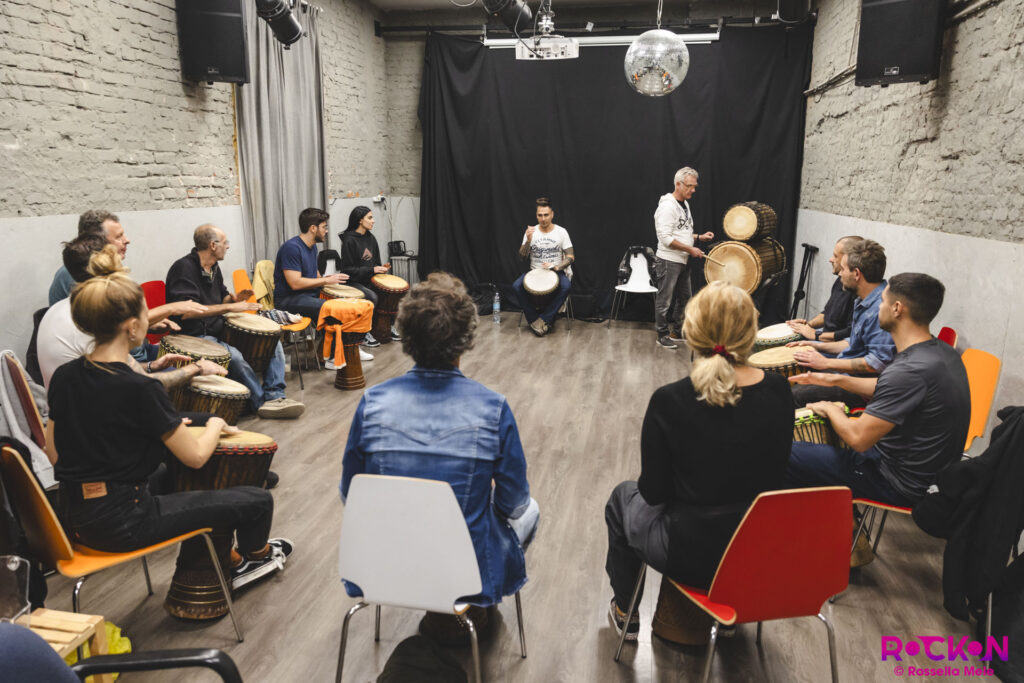

In fact, if since '98 Sunugal has been the socio-cultural association founded on the initiative of a group of foreign citizens, mostly Senegalese and Italian, with the aim of promoting exchange initiatives between the two countries and which today acts as connector and point of reunion between Senegalese in Italy and in their homeland, Modou's mission has been expanding since 2013, when he and his team with Fate Artigiane won the public tender to the restructuring and redevelopment of Cascina Casottello of the Municipality of Milan. Announcement which includes the aim of starting a process of territorial and architectural regeneration. I won't be here to sell you the rhetoric of integration, inclusion, things that the CIQ obviously does – the theme is that it does it in the simplest way in the world. By managing a space and making it available to the neighborhood community, the city, and the souls that are part of it. And if there is one thing I learned in Milan, thanks to the desperate search for meeting spaces that this city never seems to be able to carve out in any square meter of concrete, it is that there is a great desire to do “things”. Whether it's a workshop, an exhibition on tribal culture, or simply a concert.
Here is the real turning point of the CIQ. The simple implementation of the concept of opening a space to the public and allowing it to be used had the immediate effect of seeing a monthly schedule fill up faster than those of RAI – and with fewer wars. “Let's say that we, that the CIQ.” explains Modou after having stuffed ourselves with enormous doses of chips and beer at the table in the restaurant area “as an association, we start with the philosophy that we created a container, and therefore we needed the content. It is no coincidence that it is called the International Neighborhood Centre, because it is truly international, in the sense that, as mentioned, we host rock, punk, indie, African and Latin bands”. He mentions the dancers being prepared in the next room. “As you can see here there is also a Latin dance class, over there there is a show for children. So we really are in one of the few open and wide-open realities.”
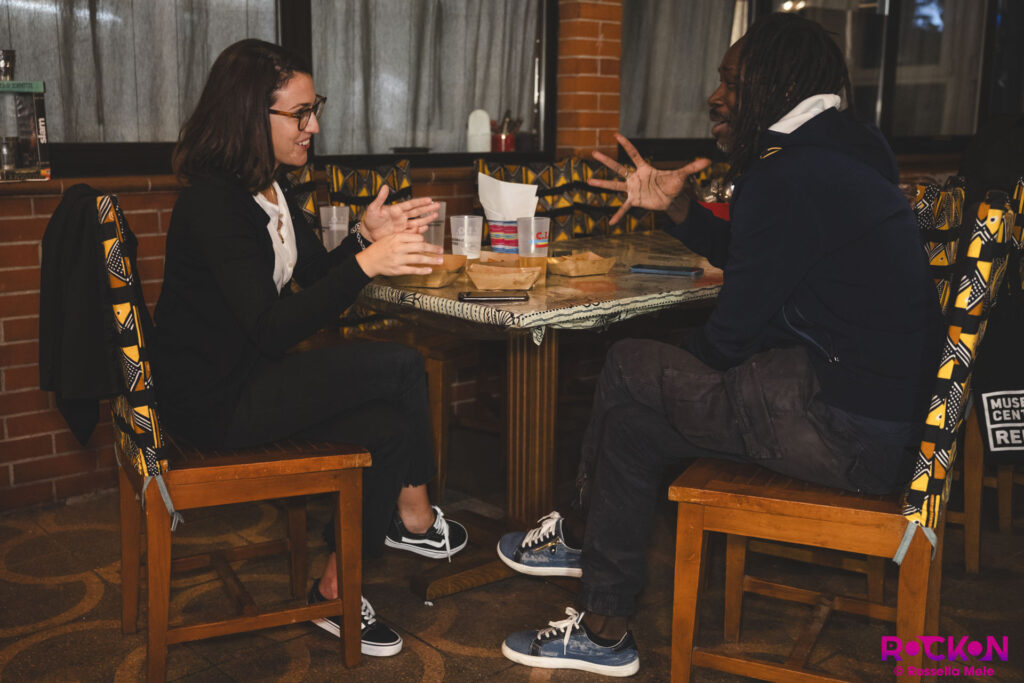

Too? “A bunch of cool guys came here, they did an event at the Center, and there was another event in the cinema room, another in the white room, another in the garden. They looked at us and said: you must have an identity. But what identity should we have? We don't have an exclusive, which only you pussies should have”. He laughs about it. Modou is a citizen of the world as he prefers to define himself, an actor and artist based in Italy for a lifetime we could say, and above all a frank and direct voice. The event of “jocks” he says, it was also very successful, a beautiful event. “But they can't tell me: you must have an identity. Our identity is that we have created a container. We therefore need contents, and since we have different spaces, these spaces must be used”.
From his experience, Modou he doesn't particularly like being labeled, like any of us, with the difference that finding ourselves managing a space like the CIQ poses a significant challenge, especially when it becomes an attractive element for the city. So much so that they end up entangled in “category” discourses, which then necessarily lead to having to make artistic choices that cut off patrons and cultural projects. Banally, the CIQ finds its strength in rejecting this debacle and inverting the discussion starting from the concept of not having to have it, but being a means for everything that can be art and culture, aggregation. Also because there is a function assigned by public mandate involved. “Consequently we cannot be the club of jazz musicians, that is, the jazz musicians come here, the Milano Music Collective, with their old men” he jokes “but at the same time in the other room, there is the rock concert. I mean, it has to be like this. These people then meet in the bar, meet in the courtyard, meet in the garden. And every now and then interesting commissions are created”. And how?
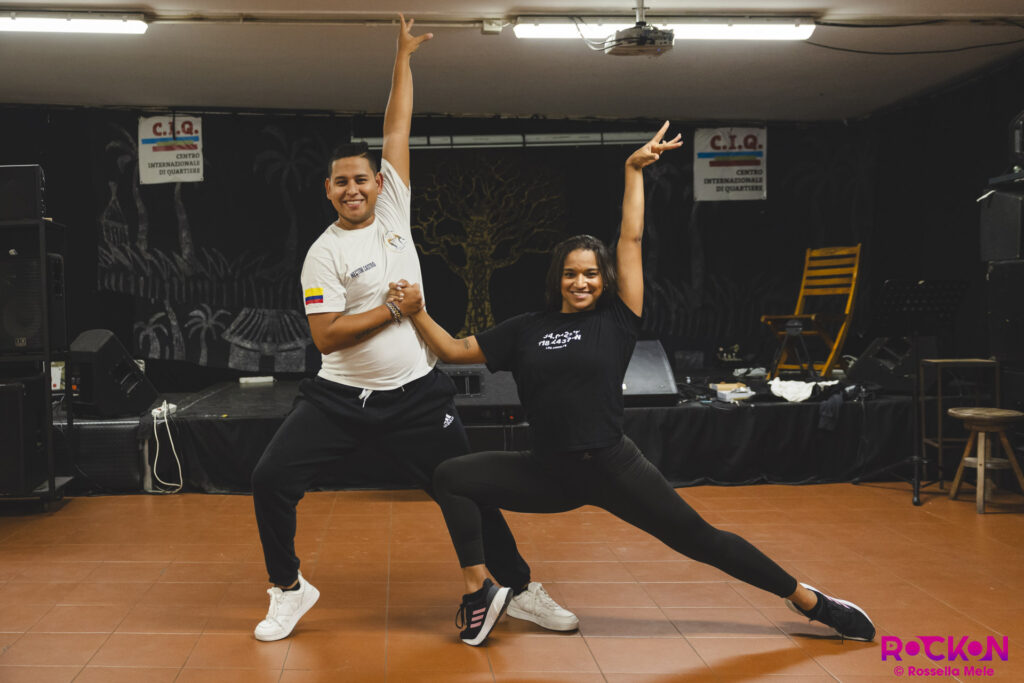

“I understand that perhaps, here there is the Italian Senegal Association, and then perhaps one thinks that the CIQ is more linked, I don't know, to Africa? That they are Africanized?” here he bursts into laughter. “No, we host everyone here. International means that yesterday there were two Argentine artists who played here, another who played the harp in the courtyard and in the meantime there was a group from the diasporas who were having a meeting on colonialism. And then there was a concert, and so on”. Chaotic and engaging like an Almodovar film, I think.
Modou goes for examples in telling what the CIQ is. All these episodes talk about space, and spaces to use – after all, Sunugal was first based on The Steam Factory but he was looking for larger spaces to expand and hold large concerts. Modou is the ambitious and dreamy artistic director, when the opportunity of Cascina Casottello presented itself he didn't have to be told twice and jumped in. It's a bit like his child, and that of the team of people who work with him. Behind there is an effective machine whose sole function is to harmonize the contents and prepare them for the public, as in their very punctual and always rich monthly agenda published on Instagram.
Moving from the Fabbrica to Casottello also means significantly changing latitude. And move to Corvetto, with everything that comes with it. And find a connection with them. “THEThe neighborhood participates based on what interests them. Last week, off the top of my head, I don't remember what concert there was, but I recognized at least fifteen from the neighborhood. Then, we had evenings, we had barbecues, we held events and fundraisers. We filled both rooms and had 150 people sitting down to talk to the local women. There are all kinds of neighborhood businesses that do their business here. Many other entities in the neighborhood also ask me for spaces for condominium meetings”. It may happen that some entities decide to establish themselves on a permanent basis with their headquarters and then contribute, albeit minimally, to the management of the common home. Modou still smiles thinking about when he found 12 thousand euros credited due to an error by one of the associations present on site. But the concept remains the same: there must be no barriers to entry for anyone at the CIQ, not even of a musical genre.
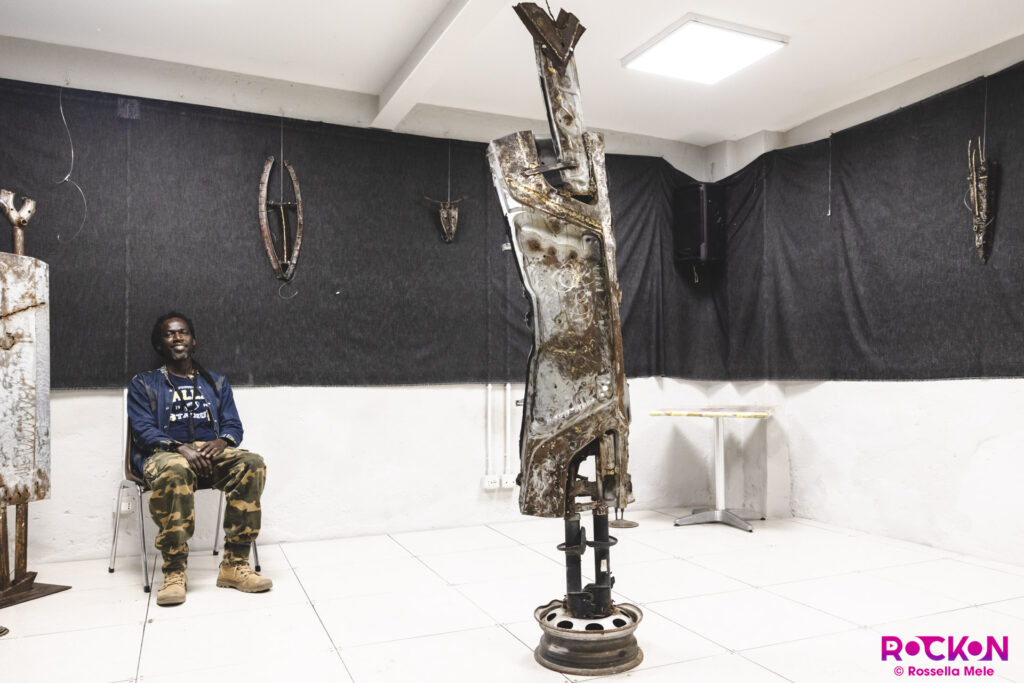

“We thought that it could (the CIQ, nb) truly be a multifunctional space for all the communities, all the artistic and cultural realities of Milan. Like we did before, when they asked us: because anyway, when we were at the Fabbrica del Vapore we also hosted the guys from Brera to do exhibitions. We brought different associations, different artistic realities, we even had half a program, despite the space being small. And now (here at the CIQ, you mean) there continues to be that flow from the center and beyond. Let's say, there are people who also come from Parma to Turin, rather than from Germany, France or Africa.”
In other words: from everywhere. And Modou aims for this. It weaves networks, creates contacts, opens up to everyone. Let's talk about it a bit with Aliou Dioprap singer, trainer and also an active intercultural mediator (he created and hosted the web TV show “Out in the open”), but above all the CIQ's “music” manager (even if he says he is only the sound engineer). He talks to us about how the Center makes space as well as a bridge for associative realities in other cities, such as Korabi of Turin, but also of established artists in Senegal and beyond who are bursting onto the music scene. Dread Maxim Amar he was here at the CIQ. And not only that. Just look at the very crowded Instagram schedule. And for this week the CIQ is also on stage for the Music Week 2024.
Then there is a more complex internal organisation, which tries to stem the huge demand for space. Explains Aliouthere are representatives for multiple genres: and then we try to work on strands of events ranging from punk rock to popular Thursday dances. But is there any genre that emerges more? “So, those who stress the most and want to play the most are the rockers. Every day at least ten 10 requests” says Modou. Aliou then tells us that the demand for these genres has increased (“There are obviously no dedicated rooms”and it goes by word of mouth) and therefore we are moving towards a reasoning to better distribute the requests. But then there are also blues bands, jazz historians, metal bands, graduation parties and DJs plus all the incredible neighborhood scenery. Aliou prefers reggae: it's more pleasant, he says, for the environment, but it's not his preferences that decide. You have to listen to everything: the requests of the kids as well as the requests. The CIQ “It is unique in its style. And in the end there aren't so many places in Milan anymore, and this is also the reason for the strong demand for spaces here. If you come on Saturday, it's packed, and you can listen to three or four genres in one evening, from teenagers to seniors”. You can also find Beppe Sala.
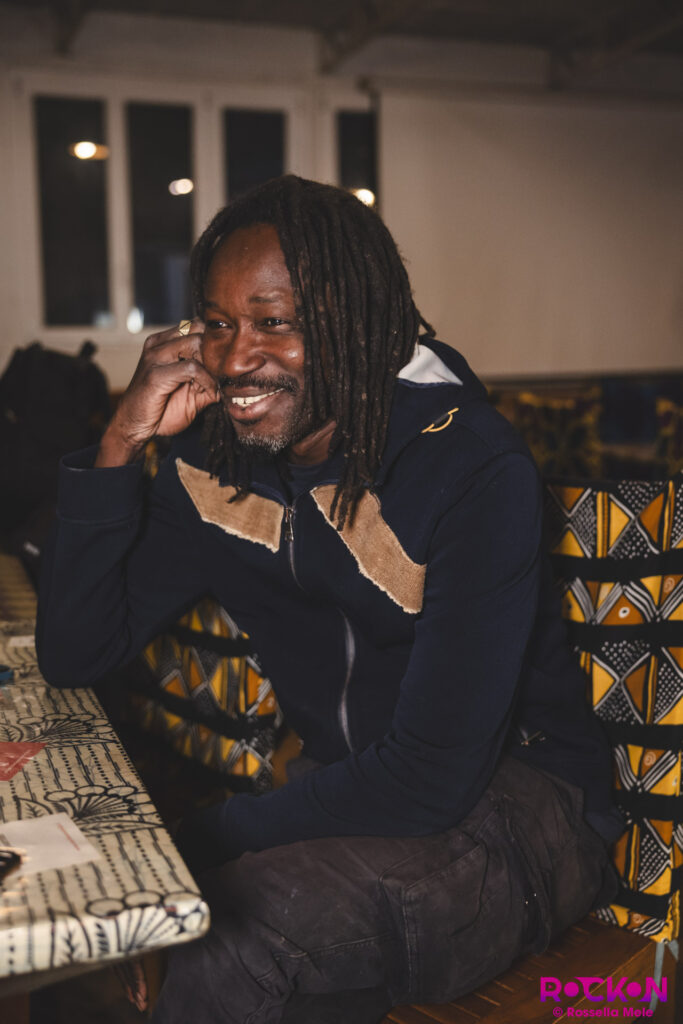

And this is the CIQ's key to opening up to – and then opening up – Milan. A stubborn resistance to conforming to any type of categorization, so you who go, be surprised. Which is also nice, isn't it? Even if it is really difficult not to feel at home where everyone is welcome. And it's not just this, also because Modou is not one to limit his dreams. When we ask him what the next step is or even his dream for the Centre, he lights up and has few doubts: a festival of two worlds, Italy and Africa. With many, many, hundreds of people. No mean feat, but he is not one to be discouraged. Who knows how close he actually is to his goal. It won't be difficult to find out.
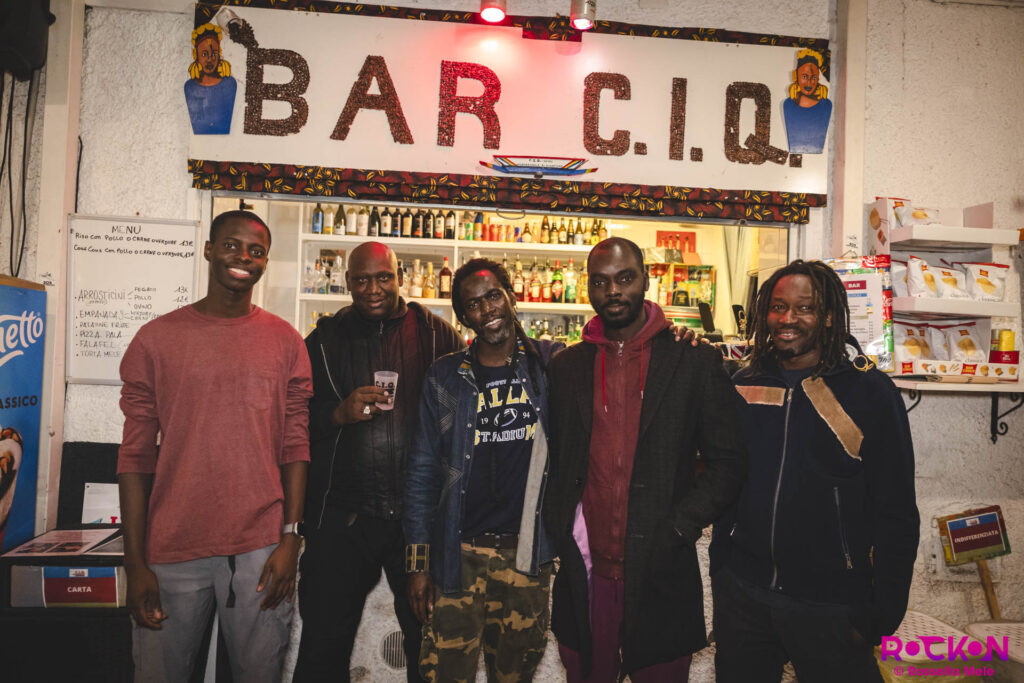

Daniel D`Amico for SANREMO.FM

